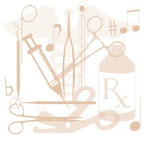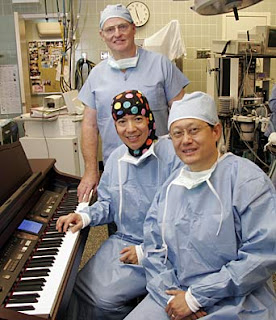
Anxiety before elective surgery is common. Therefore, many studies have examined interventions to reduce preoperative anxiety, including pharmacologic anxiolysis, information, distraction, and relaxation procedures. This study compared different methods to measure preoperative anxiety. The aims of the study were threefold. First, to examine the validity and utility of the self-reporting visual analog scale (VAS) and to compare this test to the standard Spielberger State-Trait Anxiety Inventory (STAI). Second, to find out whether the authors could identify patient risk factors or operations that correlated with high preoperative anxiety. Third, to itemize the concerns of patients admitted for elective anesthesia and surgery. The study was conducted in a university hospital in Switzerland.
The authors developed a questionnaire to evaluate the different aspects of preoperative anxiety. The final questionnaire contained 91 items. Topics covered included the patients' demographic background, relevant medical and anesthetic history, visual analog scales (for fear of anesthesia, fear of surgery, and different aspects of preoperative anxiety), as well as questions designed to assess the impact of the preoperative visit by the anesthesiologist, patients' satisfaction with different aspects of their preoperative care and the patients' perception of their anesthesiologist. This study was performed on all patients admitted preoperatively for surgery over a three-month period . They completed the questionnaire on the evening before surgery, in hospital.
685 of the 734 questionnaires distributed to patients were returned. The authors found a significant correlation between the VAS measuring fear of anesthesia and the STAI, and between the VAS measuring fear of surgery and the STAI. These correlations were not significantly different between male and female patients. 25% of patients scored higher than 1 standard deviation above the normative mean STAI and were defined as having high preoperative anxiety. Factors associated with higher preoperative anxiety levels were age less than 37 years, previous negative experience with anesthesia, information seeking behavior (rather than information avoiding), and patients with high school only education. The different genders had increased fear of different kinds of surgical procedures.
The questions evaluating patients' preoperative fears were assessed after factor analysis and found to have three characteristic areas. The first group of characteristics was called by the authors "fear of the unknown." This factor consisted of fear of the waiting period before surgery/anesthesia, of being at the mercy of physicians during anesthesia, of surgical outcome, and of not knowing what occurs while unconscious during anesthesia. This factor correlated highly with the STAI. The second factor, termed "fear of feeling ill," included the fear of postoperative nausea or vomiting, perioperative pain, as well as fear of discomfort at postoperative awakening and of awareness intraoperatively. The third factor was termed "fear for one's life" and consisted of fear of not regaining consciousness, fear of dying and remaining in a coma. These latter two factors were less correlated with STAI. The authors also queried specific anxiety factors and found that "waiting for operation" generated the highest anxiety score. Postoperative pain anxiety ranked number four [out of 10], postoperative nausea and vomiting ranked number six, and awareness under anesthesia ranked number ten of ten.
In summary, this study shows that the VAS may be a useful clinical tool to measure preoperative anxiety. Certain patient characteristics might serve to warn the anesthesiologist about the potential presence of increased preoperative anxiety. This increased knowledge may allow anesthesiologists to provide additional appropriate care to ameliorate the anxiety state.

























